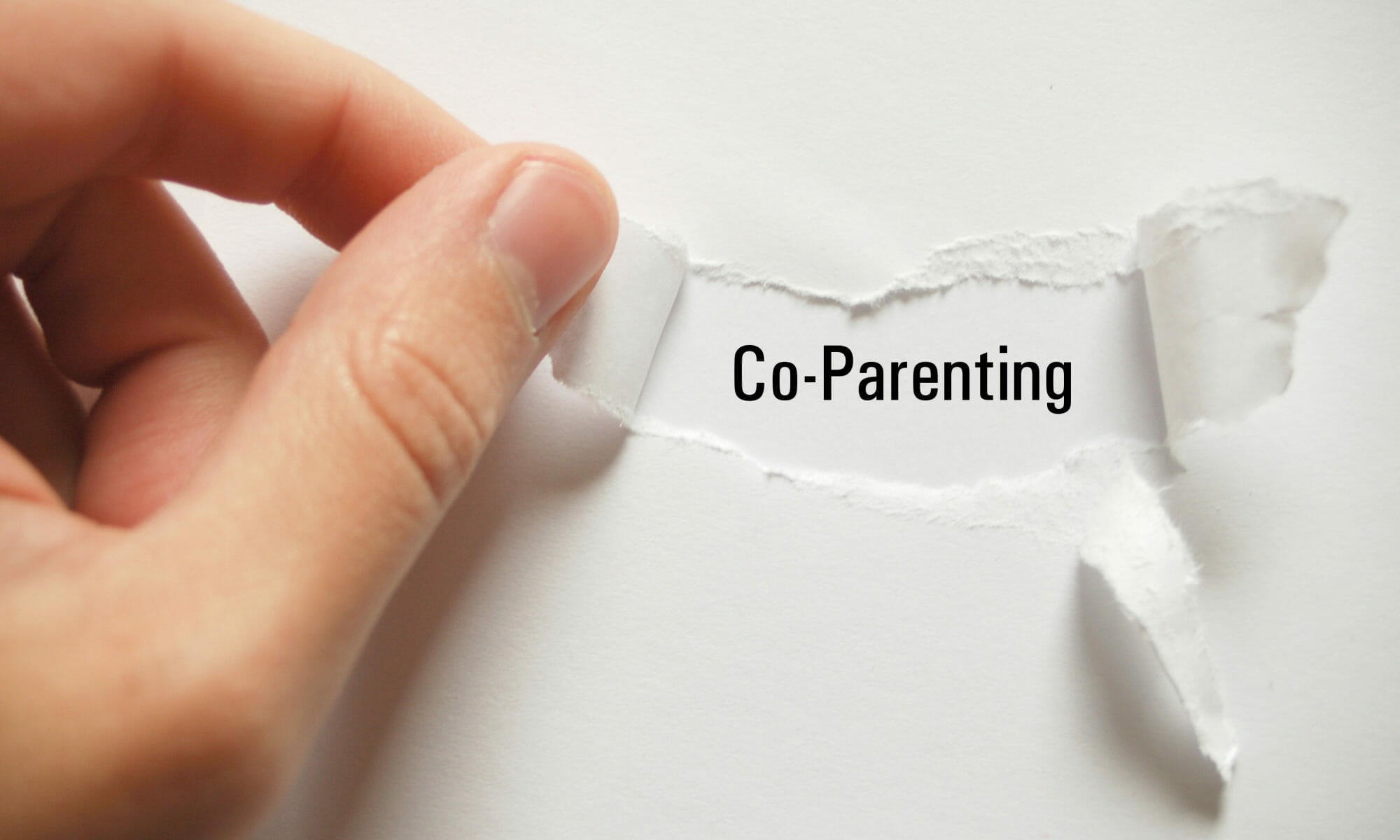As per the latest statistics attained from The Centers and Disease Control and Prevention, the rate of divorce in the US is witnessed to be 3.2 out of every 1,000 people (Kennedy and Ruggles, 2014). This leaves behind quite a larger number of under-aged children to be deprived of the affection, time and upbringing from both of their parents. With the decision of separation taken by the mutual decision of parent, children are the ones that are affected the most and may lead them with several emotional and behavioral disorders and instability. It develops in them some complexes, depression and a sense of loneliness and being unloved which further lead to an emotionally painful process throughout every phase of their lives (Valenzuela, Halpern and Katz, 2014). For the mitigation of such a rising issues of divorce and considering the worst impacts of it on the minds of growing children, parenting guidelines are introduced and several mobile application and websites have been devoted for the cause of time management and visitation of parental guidelines for those who do not have custody of their children in order spend time with them and to cope up with the potential impacts of separation on children and adolescents.
Impacts of Divorce on Children
The continued long-term chain of conflicts among the parents until the time of separation causes a devastating impact on the children’s psychological and emotional health and for the parents themselves. It is often difficult for parents to sort out what exactly their children are going through and thinking of such a drastic change in their life. There seems to develop a distance among children and parents which causes a communication barrier (Jeynes, 2012). Children tend not to share their feelings and suppress their emotions which consequently creates a harmful impact on their mental and emotional health, causing a lifetime deprivation of basic need for love and homely environment. Besides, divorce itself is a painful and stressful process for the separated spouse as well, which makes it’s even harder for parents to manage their own raw emotion and continuing hostility to aid their children’s needs immaculately side by side. Moreover, the legal processes for the attainment of a child’s custody is more inclined towards adversaries and blame rather than focusing on the interest of children (Weaver and Schofield, 2015). This ongoing conflict also contributes highly to erode effective parenting, resulting in causing abnormalities, instability and problems in children’s behavior and emotion. Some of the most commonly occurring debilitating issues faced by children whilst moving into their adulthood with separated parents are:
Trust Issues
Children having experienced unsavory time often faced with trust issues throughout their lives. It causes a continuous struggle for children to revive back the trust and honesty in relationships which consequently also reflects in their personal marital lives in the future (Anderson, 2014). The trust issue of parent’s plague children, resulting in shadowing their ability to trust others. Such a devastating experience in children’s live and ongoing conflicts of parenting in their feeble age tend them to lose their trust in honesty, love, and loyalty in relationships.
Resentment
The resentment shown by the parents can result to be the facet of children. The experience of separation and struggle to attain the custody of a child results in resentment of quality of life, loss of time and happiness (Fagan and Churchill, 2012). Such a resented, if remained untreated and unmeasured, can result in being absolutely debilitating. The continued struggle of a child to take care emotionally of the wounded parents would lose the colors in their growing lives as a kid.
Addiction
The children faced with the abrupt divorce of their parents often end up doing drugs and more highly susceptible to abuse and harm themselves (Kalmijn, 2012). The troubled childhood often tends them to opt for drugs to spiritually and emotionally heal themselves and to release their anxiety, pain and frustration.
Mental Issues
The experience of the conflicts that lead parents to get separated to the point where they become emotionally fragile, such a constant phase of fight, struggle between the loved ones and broken family lead a child to be nothing but depressed, filled with several insecurities, resilience, anger, trust issues and many infectious emotions that might never let him lead a normal and happy life ahead (Amato, 2014).
Co-Dependency
Co-dependency is often encountered by the children of a divided family which refers to losing a sense of self-identity and to be dependent on an emotionally troubled partner (Larson and Halfon, 2013). Such an experience causes troublesome reliance on emotions on a partner to fulfill self-esteem needs.
How to Deal with the Behavioral and Emotional Problems of Children:
There are measures and steps that separating parents can perform in order to minimize the negativity of the impacts of divorce on children. Children often show greater vulnerabilities at this point in time yet with resilience. No matter what the reason lies behind the marital separation decision, but parent mostly seems to be well-intentioned towards their children (Divorce, 2019). Despite the pain of divorce, separation brings with it several other stressful occurrences like legal battles, houses move, supportive relationships loss and money deprivation etc., all include the basics and fundamental needs of life required by all, especially children experiencing it. Children tend to suffer a range of social and emotional difficulties consequently (RC PSYCH, 2019).
However, with effective management and mutual efforts made by the parents, several steps can be taken to cope up with the negative effects of divorce on children (The Irish Times, 2019). There exists a greater possibility and high probability of children leading quite a normal and happy life ahead if parents tend to mitigate the pitfalls in their children’s lives and manage to help children go through the process of separation by implementing some of the below mentioned effective parenting practices:
Implementing Indiana Parenting Time Guidelines
The guidelines dictate specifically regarding the visitation rules as per the age and other factors of children. It entails vividly about the parental visitation rules among various events, festival, holidays and timelines where they are supposed to meet and spend time with their children, varying as per child’s age (In, 2019). It suggests the parents discuss the time of visitation but if not then non-custodial parents are required to schedule to visit. For the parents how to live far away from one another are also given suggestion on the underlying issue. Parents are therefore required to follow such a visitation guideline to perform effective parenting and give time to their children (Indiana Legal Services, 2019).
Manage your Personal Stress Level to Rightfully Perform Effective Parenting
It is a normal case to go through a roller-coaster of emotion, shame, guilt, anger and grief through the process of separation (HelpGuide, 2019). At such a time, children need the support of parents the most. But in order to be a pillar for children, it is necessary for parents to deal with their stress by means of counseling or any help with close friends (Help and Counseling, 2019).
Constructively Work with Your Former Spouse to Deal with Parenting Issues
The most concerning issue faced by the separating is the ongoing conflicts of the spouse. It makes for parents difficult to develop a constructive relationship with the children. By creating a harmonious environment of family and mutual well-intensions for the children, arrangements can be made for the interest of children by means of shared expenses, custody calendar, shared calendar, use of parenting app, divorce app and family organizer, etc. (Clark et al., 2013)
Use Parenting Applications to Manage the Family’s Schedule
The use of parenting and the co-parenting application would be quite useful in such a case in managing the family’s information in an organized and well-documented manner (McMahon, 2012). There are several best parenting applications to manage your family schedule with also allows sharing the calendar with your spouse to coordinate respectively and give the most memorable and well-nourished moments to your children.
Help Children Give Balanced Loyalty, Love and Time
Make sure to mitigate the divided loyalty experience by your children and try to provide them an appropriate, balanced and age-appropriate account of divorce. One should try speaking only positives about the ex-partner and help prevent infusing negativity among either of them in children’s minds. Never use children as a go-between medium, rather talk directly (HelpGuide, 2019).
Have Open Communication with your Children
It is important to make time for children to carry out one-to-one conversation to help children open up their true emotion and letting their grief out of their chests. Children often conceal their emotions and perplexed thoughts (Nationwidechildrens, 2019). Work hard to eliminate all their queries and share feelings among one another to cope with the struggle together.
Minimize the Changes in Children’s Life
Separation often comes with the loss of friends, family and old house as well which harshly affects children more than the grief of divorce itself (Caringforkids, 2019). It is suggested to maintain as many good old things, memories and experiences as possible and help introduce a new yet positive change in children’s lives in a subtle manner rather than drastically introducing abrupt change in lives.
Activities to Help Children Deal with Divorce
Divorce is a life transitioning event for both, the parents and the children. Both go through a verity of emotions, especially affecting the young minds of children (Raising Children Network, 2019). Parents ought to not only cope up with their emotional stability as soon as possible but also provide support to their children to deal with their concerns, feelings and frustration faced due to separation.
Visit Them Frequently
Manage your schedule and cope with the ex-partner to go visit the child, if he/she is not in your custody. Make use of schedule managing parenting mobile and web applications to deal with the issue efficiently and to also coordinate the timetable with the partner by means of sharing calendar through the apps to give children the love and affection of both, mommy and daddy (Jannese, 2019).
Communicate from Distance
If one of the parents lives abroad or far away from the recent caretaker of children, then parents are suggested to continue communicating with the children to retain a strong relationship with them. This can be done by emailing each other, weekly or monthly basis phone calls, writing the letter, exchanging video and audio recording to share the moments or initiate a postcard club etc. (Parents, 2019)
Spend Time Together on Holidays and Festival
Festivals, holidays and events are the occasions where every family spend their time together and make unforgettable memories. This is where a child with broken family wants their parents the most to get reunited and experience the same emotions as every other child. Halloween, Christmas, summer vacations and important school occasions of children can be made memorable together as a family (Verywell Family, 2019).
Play Together
Playing with children often helps them to express their feelings and relieve their stress and give them a sense of belonging, affection and love from their parents that might have been shadowed by the experience of divorce (Afifi, 2019). Exercise, walking, camping and swimming etc. can be effective ways to make memories with children.
Creating Two Comfortable Homes
Ensure to keep familiar items in each of the spouse’s house to give your children the same and homely feeling in both places. Out up family photos, clothing, favorite food, school supplies, games, and toys to give you children a secure and homely experience (Psychology Today, 2019).
How 2houses Will Benefit Separated Parents to Give a Well-Nourished Life to Your Children?
2houses is a useful tool for the parents that have been separated but look for an organizer to manage their schedule to effectively communicate and visit their children for their well-being and nourishing upbringing. It helps you keep track of and manage all activities, medical and after school information, manage their expenses and organize custody schedule (2houses, 2019). Considering the maximum reachability of such useful resources, the tools are available as a mobile and web application, both. The application is being used by more than 170,598 separated families and is spread among 170 countries with the aim to provide children with the most complete and happy childhood whilst giving utmost ease to parents to give the children all the colors of their lives (Seif & McNamee, 2019).
The tools are a wholesome package of an interacting calendar with sharing and synchronization facility, an effectual financial management system, a journal to share memories among family members, bank information to keep track of child’s necessities and massages to interact (Gillespie, 2019).
The love, affection and time of parents is the basic necessity of children, which often gets unattained in the process of divorce, letting trust issues, complexes and emotional instability affecting abruptly a child’s life. It is therefore, necessary to take steps by the parents to rectify such a major pitfall in their children life by taking the above mention measures to lead a happy, healthy and a normal life ahead as a family.
References
2houses (2019). Divorced parents web & mobile app. [online] 2houses.com. Available at: https://www.2houses.com/en/ [Accessed 18 Dec. 2019].
Afifi, T. (2019). The best possible thing you can do to help your child through divorce. [online] ideas.ted.com. Available at: https://ideas.ted.com/the-best-possible-thing-you-can-do-to-help-your-child-through-your-divorce/ [Accessed 18 Dec. 2019].
Amato, P.R., 2014. The consequences of divorce for adults and children: An update. Društvena istraživanja: časopis za opća društvena pitanja, 23(1), pp.5-24.
Anderson, J., 2014. The impact of family structure on the health of children: Effects of divorce. The Linacre Quarterly, 81(4), pp.378-387.
Caringforkids, C. (2019). Helping children cope with separation and divorce – Caring for Kids. [online] Caringforkids.cps.ca. Available at: https://www.caringforkids.cps.ca/handouts/separation_and_divorce [Accessed 18 Dec. 2019].
Clark, B., Canadian Paediatric Society and Mental Health and Developmental Disabilities Committee, 2013. Supporting the mental health of children and youth of separating parents. Paediatrics & child health, 18(7), pp.373-377.
Divorce, A. (2019). Activities for Helping Children Deal with Divorce. [online] Extension2.missouri.edu. Available at: https://extension2.missouri.edu/gh6602 [Accessed 18 Dec. 2019].
Fagan, P.F. and Churchill, A., 2012. The effects of divorce on children. Marri Research, pp.1-48.
Gillespie, C. (2019). This Tool Helps Divorced Parents Avoid Disaster. [online] SheKnows. Available at: https://www.sheknows.com/parenting/articles/2004742/best-co-parenting-apps/ [Accessed 18 Dec. 2019].
Gillespie, C. (2019). This Tool Helps Divorced Parents Avoid Disaster. [online] SheKnows. Available at: https://www.sheknows.com/parenting/articles/2004742/best-co-parenting-apps/ [Accessed 18 Dec. 2019].
Help, M. and Counseling, D. (2019). Challenges that Children of Divorce Face in their Adulthood | Marriage.com. [online] Best Marriage Advice – Get Marriage Tips from Experts. Available at: https://www.marriage.com/advice/divorce/challenges-that-children-of-divorce-face-in-their-adulthood/ [Accessed 18 Dec. 2019].
HelpGuide (2019). Children and Divorce. [online] HelpGuide.org. Available at: https://www.helpguide.org/articles/parenting-family/children-and-divorce.htm [Accessed 18 Dec. 2019].
HelpGuide (2019). Co-Parenting Tips for Divorced Parents. [online] HelpGuide.org. Available at: https://www.helpguide.org/articles/parenting-family/co-parenting-tips-for-divorced-parents.htm [Accessed 18 Dec. 2019].
In (2019). Indiana Parenting Time Guidelines. [online] In.gov. Available at: https://www.in.gov/judiciary/rules/parenting/index.html [Accessed 18 Dec. 2019].
Indiana Legal Services (2019). Indiana Parenting Time Guidelines. [online] Indiana Legal Services, Inc. Available at: https://www.indianalegalservices.org/node/35/indiana-parenting-time-guidelines [Accessed 18 Dec. 2019].
Jannese, S. (2019). 9 Rules for Divorced Parents (from a Kid Who’s Been Stuck in the Middle). [online] Babble. Available at: https://www.babble.com/relationships/9-rules-for-divorced-parents-from-a-kid-whos-been-stuck-in-the-middle/ [Accessed 18 Dec. 2019].
Jeynes, W., 2012. Divorce, family structure, and the academic success of children. Routledge.
Kalmijn, M., 2012. Long-term effects of divorce on parent–child relationships: Within-family comparisons of fathers and mothers. European sociological review, 29(5), pp.888-898.
Kennedy, S. and Ruggles, S., 2014. Breaking up is hard to count: The rise of divorce in the United States, 1980–2010. Demography, 51(2), pp.587-598.
Larson, K. and Halfon, N., 2013. Parental divorce and adult longevity. International Journal of Public Health, 58(1), pp.89-97.
McMahon, L., 2012. The handbook of play therapy and therapeutic play. Routledge.
Nationwidechildrens (2019). Divorce and Children: Guidelines for Parents. [online] Nationwidechildrens.org. Available at: https://www.nationwidechildrens.org/family-resources-education/health-wellness-and-safety-resources/helping-hands/divorce-and-children [Accessed 18 Dec. 2019].
Parents (2019). https://www.parents.com. [online] Parents. Available at: https://www.parents.com/parenting/divorce/coping/11-rules-for-helping-your-child-deal-with-divorce/ [Accessed 18 Dec. 2019].
Psychology Today (2019). 8 Strategies for Helping Kids Adjust to a Divorce. [online] Psychology Today. Available at: https://www.psychologytoday.com/us/blog/how-raise-happy-cooperative-child/201302/8-strategies-helping-kids-adjust-divorce [Accessed 18 Dec. 2019].
Raising Children Network (2019). Co-parenting: getting the balance right. [online] Raising Children Network. Available at: https://raisingchildren.net.au/grown-ups/family-diversity/co-parenting/co-parenting [Accessed 18 Dec. 2019].
RC PSYCH (2019). Divorce or separation of parents – the impact on children and adolescents: for parents and carers. [online] RC PSYCH ROYAL COLLEGE OF PSYCHIATRISTS. Available at: https://www.rcpsych.ac.uk/mental-health/parents-and-young-people/information-for-parents-and-carers/divorce-or-separation-of-parents—the-impact-on-children-and-adolescents-for-parents-and-carers [Accessed 18 Dec. 2019].
Seif & McNamee (2019). A Family Law Attorneys Review On Co Parenting Apps. [online] Seif & McNamee. Available at: https://law-oh.com/2017/03/29/getting-the-most-out-of-co-parenting-technology/ [Accessed 18 Dec. 2019].
Seif & McNamee (2019). A Family Law Attorneys Review On Co Parenting Apps. [online] Seif & McNamee. Available at: https://law-oh.com/2017/03/29/getting-the-most-out-of-co-parenting-technology/ [Accessed 18 Dec. 2019].
The Irish Times (2019). How to protect your children from the worst effects of divorce. [online] The Irish Times. Available at: https://www.irishtimes.com/life-and-style/people/how-to-protect-your-children-from-the-worst-effects-of-divorce-1.2076985 [Accessed 18 Dec. 2019].
Valenzuela, S., Halpern, D. and Katz, J.E., 2014. Social network sites, marriage well-being and divorce: Survey and state-level evidence from the United States. Computers in Human Behavior, 36, pp.94-101.
Verywell Family (2019). The Psychological Effects of Divorce on Children. [online] Verywell Family. Available at: https://www.verywellfamily.com/psychological-effects-of-divorce-on-kids-4140170 [Accessed 18 Dec. 2019].
Weaver, J.M. and Schofield, T.J., 2015. Mediation and moderation of divorce effects on children’s behavior problems. Journal of Family Psychology, 29(1), p.39.









